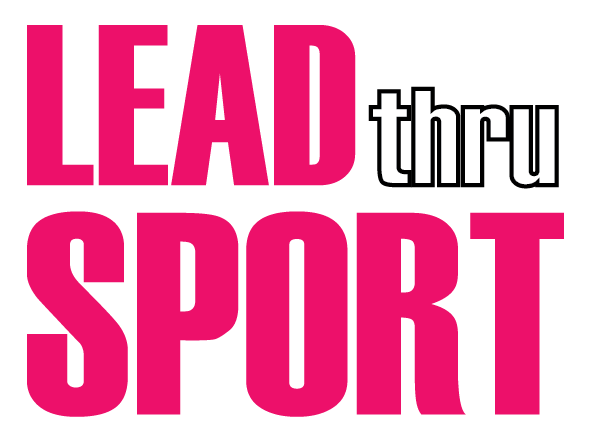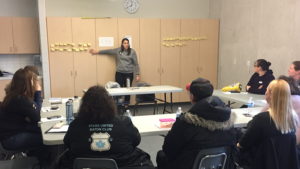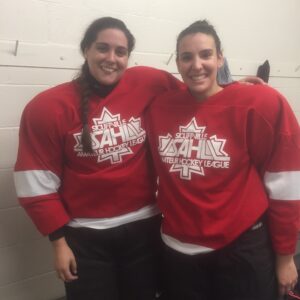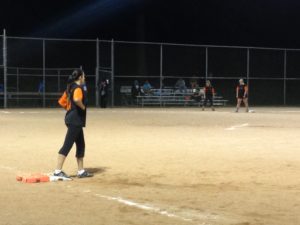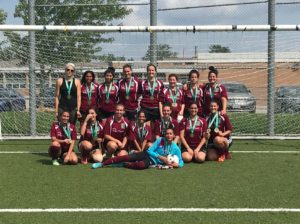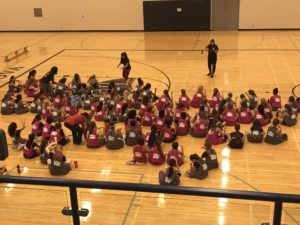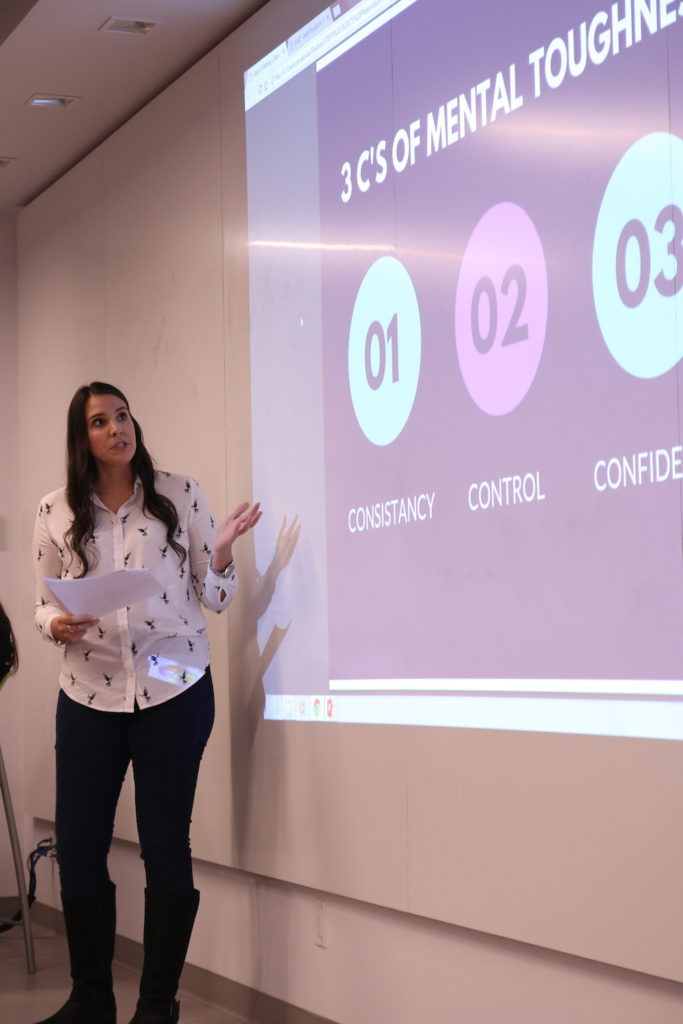WEEK #5: STEPHANIE MERENDA
Please tell us a little bit about yourself.
Sports have always been an important part of my life. I fell in love with soccer when I began playing at age 6 and have not stopped playing ever since. Along my sports journey, I also played hockey and was a competitive baton twirler. Having always been the athlete who performed well in practice but struggled to perform well on game day when it really mattered, I became interested in sport psychology. I knew the difference between performing well one day – and not the other – was not about physical skill or talent but about mental skills; I knew I had to remain calm under pressure and not let my nerves get the best of me. It was my experience playing sports and my passion for sport psychology that led me to pursue a career as a Mental Performance Coach.
I completed my undergraduate degree, majoring in both Kinesiology and Psychology, at York University. Combining these degrees, I continued my studies at the University of Ottawa where I obtained a Masters in Human Kinetics specializing in Sport & Exercise Psychology. Now, I am a Mental Performance Coach who works with athletes of all ages and competition levels. Through mental skills training, I counsel athletes to increase awareness and improve performance. As a lifelong athlete, I not only use mental skills in my own life while I continue to play soccer, hockey, and softball, but also outside of sport, everyday in my interactions with people.
Please share a story about an internal or external barrier you have faced?
After the first year of my master’s program, I was required to complete an internship where I would be working as a mental performance coach providing sport psychology services to teams and individual athletes. Upon learning that I would soon have clients of my own, I was riddled with self-doubt. I felt unprepared and could not picture myself as the “expert” who athletes would come to for help with their mental game. This internal barrier resulted in a slow start to obtaining my internship hours. The self-doubt and negative self-talk had me questioning my abilities and contributed to a lack of confidence.
How did you overcome that barrier? What skills did you develop in sport that helped you overcome your barrier?
In order to overcome the strong sense of self-doubt I first experienced when beginning my internship, I recalled on my time as an athlete. What had I done when I felt this way in the past? Firstly, I remembered the importance of practice. I felt unprepared, so I needed deliberate practice. I started applying my knowledge of mental skills to myself, working to combat my self-doubt. I treated myself like my first ever client. Secondly, I relied heavily on the sport concept of not only working hard, but also smart. I wanted to feel comfortable being a mental performance coach, so I started working smart. I began reading more books and journal articles about sport psychology. I also recalled the value of connecting with others and networking. Using the confidence I developed through sport, I reached out to experts in the sport psychology field. I personally emailed every guest speaker who came in to speak to my class, asking for any advice they had for newcomers to the field. Through sport, I have gained invaluable life skills that continue to help me in all aspects of my life.
